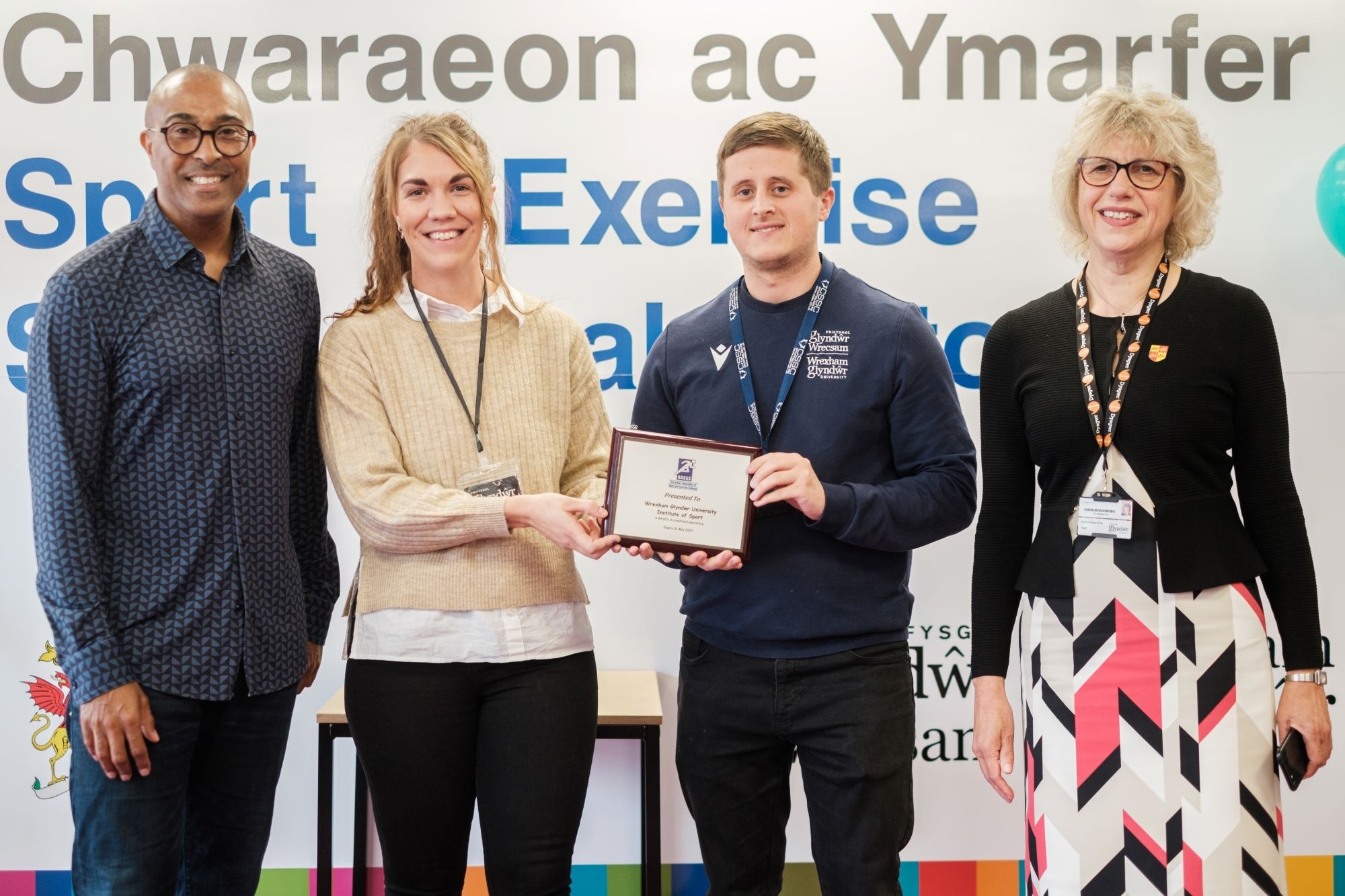Wrexham Glyndwr University hailed for excellent sports science facilities

Date: October 13 2022
We have been acknowledged for our excellent sport and exercise sciences facilities with a highly sought-after accreditation.
WGU Chancellor Colin Jackson, a World Champion hurdler and former World Record holder, congratulated staff at a ceremony to mark laboratory accreditation by the British Association of Sport & Exercise Sciences (BASES) at Plas Coch Campus.
Colin said: “As Chancellor it is always a pleasure for me to come and see what is happening and it’s exciting to see how things are being developed.”
The two-time 110 metre hurdles World Champion and Olympic silver medallist also watched youngsters from schools and colleges take part in sport and exercise tests at the laboratory, and emphasised the wide variety of careers available in professional sport.
“One of the things we want to get the youngsters to appreciate is that sport at the top level isn’t always about the performers but the team behind the performers.
“We want to highlight that we have highly accredited facilities where students can develop the skills and knowledge they need to pursue a successful career.”
Colin joined Vice-Chancellor Professor Maria Hinfelaar to unveil a plaque to mark the accreditation.
“We’re marking a really important milestone of the accreditation of the Sports Science degrees and various programmes, which is highly sought after,” Professor Hinfelaar said.
The BASES laboratory accreditation process provides a mark of quality assurance to clients, research funders and the wider community that illustrates the laboratory has undergone meticulous inspection by BASES and that high professional standards of practice have been achieved.
Dr Chelsea Batty, Lecturer in Applied Sport, Health and Exercise Physiology at the university, said: “As a BASES Sport & Exercise Scientist, I’ve always wanted to ensure that what we are providing in the lab in the form of teaching, research and consultancy is of high quality.
“Richard Lewis (Sport Science Technician) and I developed the application at the end of Spring which involved meticulous checking of all our equipment, policies and procedures. We also invited some of our students to get involved, especially with the conducting of reliability testing of our physiological testing kit which we felt was a valuable experience for them.
“Having the laboratory accredited now means we can advertise our lab is appropriate to conduct physiological testing which we do week in and week out with students and externals in the form of consultancy and research. As the laboratory director, I am proud to say we at Glyndwr have achieved something great, that our techniques and equipment are used with due regard for calibration, reliability and validity.”